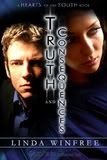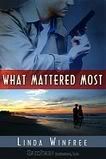Syntax Musings
It's a weird day at school (region baseball playoffs -- whoo-hoo!) and I'm a little all over the place. I've spent the morning trying to come up with a topic, but between two sets of edits for my editor, student governemnt stuff, poetry anthologies, and finally an email from my editor offering me a contract for one of my submissions to her . . . well, I'm scattered.
However, I've been thinking about syntax (sentence structure; the arrangement of words into sentences) a lot lately, simply because of those poetry anthologies my students are working on. I adore poetry -- I like how a great poet can condense a theme into the fewest possible words, how each word carries its own weight, how the arrangement of those words can change everything.
For example, look at "since feeling is first" by e. e. cummings, a Modern/contemporary American poet:
since feeling is first
who pays any attention
to the syntax of things
will never wholly kiss you;
wholly to be a fool
while Spring is in the world
my blood approves,
and kisses are a better fate
than wisdom
lady I swear by all flowers. Don't cry
-- the best gesture of my brain is less than
your eyelids' flutter which says
we are for each other: then
laugh, leaning back in my arms
for life's not a paragraph
And death i think is no parenthesis
***
I love this poem, first because cummings mentions syntax -- I like the play upon the phrase "to the syntax of things" in the first stanza because the arrangement of words there allows the stanza to be read in more than one way. Eliot does much of the same arranging in many of his poems (I'm explicating "The Love Song of J. Alfred Prufrock" for my juniors as they learn how to explicate -- this is down-and-dirty-in-the-trenches analysis of craft, LOL).
But . . . since poetry explication is not why you visit us, I thought I'd share something I do teach about syntax in my classes that romance writers can use -- a list of suggested sentence beginnings. (I did not create this handout -- I stole it from another teacher so long ago, I don't even remember who to credit. The examples are mostly mine, however.) Here goes:
1) Two adjectives
Tall, handsome deputies flirt . . .
2) An appositive
Troy Lee, the tall, handsome deputy, flirts . . .
3) A parallel structure
Tall and handsome, Troy Lee flirts
4) A question
Who could that tall, handsome deputy be?
5) A prepositional phrase
Against the patrol car hood the tall handsome deputy lounges.
6) An infinitive
To ride around back roads all day is part of a rural deputy's job.
7) A gerund
Serving and protecting is a deputy's duty.
8) A perfect infinitive
To have killed someone was beyond her comprehension.
9) A perfect participle (past participle)
Having killed him, she smiled.
10) A present participle
Smiling at the speeding driver, Troy Lee pulled out his ticket book.
11) A perfect gerund
Having killed him was her dream come true . . . and her worst nightmare.
12) A predicate adjective
Tall and strong was the prison guard.
13) A predicate noun
A tall, strong man was the guard.
14) Parallel structure, more complex
A tall man and a handsome one, Troy Lee loved law enforcement.
15) An adverbial clause
While he was on patrol, Troy Lee gathered much female attention.
16) A noun clause
That she had killed him had never been proven.
17) An exclamation! (which my editor would hate!)
Wow! He certainly seems powerful.
18) A mild interjection
Well, that was that.
Next Friday (and over the weekend, if it's all right with my blog partners!), I'll be hosting a minilesson here on analyzing syntax -- in your own writing as well as a favorite author's. If you're interested in participating, drop me an email with "Syntax Workshop" in the subject line to linda_winfree at yahoo dot com so I can send you the syntax forms and directions.
Have a great weekend!
However, I've been thinking about syntax (sentence structure; the arrangement of words into sentences) a lot lately, simply because of those poetry anthologies my students are working on. I adore poetry -- I like how a great poet can condense a theme into the fewest possible words, how each word carries its own weight, how the arrangement of those words can change everything.
For example, look at "since feeling is first" by e. e. cummings, a Modern/contemporary American poet:
since feeling is first
who pays any attention
to the syntax of things
will never wholly kiss you;
wholly to be a fool
while Spring is in the world
my blood approves,
and kisses are a better fate
than wisdom
lady I swear by all flowers. Don't cry
-- the best gesture of my brain is less than
your eyelids' flutter which says
we are for each other: then
laugh, leaning back in my arms
for life's not a paragraph
And death i think is no parenthesis
***
I love this poem, first because cummings mentions syntax -- I like the play upon the phrase "to the syntax of things" in the first stanza because the arrangement of words there allows the stanza to be read in more than one way. Eliot does much of the same arranging in many of his poems (I'm explicating "The Love Song of J. Alfred Prufrock" for my juniors as they learn how to explicate -- this is down-and-dirty-in-the-trenches analysis of craft, LOL).
But . . . since poetry explication is not why you visit us, I thought I'd share something I do teach about syntax in my classes that romance writers can use -- a list of suggested sentence beginnings. (I did not create this handout -- I stole it from another teacher so long ago, I don't even remember who to credit. The examples are mostly mine, however.) Here goes:
1) Two adjectives
Tall, handsome deputies flirt . . .
2) An appositive
Troy Lee, the tall, handsome deputy, flirts . . .
3) A parallel structure
Tall and handsome, Troy Lee flirts
4) A question
Who could that tall, handsome deputy be?
5) A prepositional phrase
Against the patrol car hood the tall handsome deputy lounges.
6) An infinitive
To ride around back roads all day is part of a rural deputy's job.
7) A gerund
Serving and protecting is a deputy's duty.
8) A perfect infinitive
To have killed someone was beyond her comprehension.
9) A perfect participle (past participle)
Having killed him, she smiled.
10) A present participle
Smiling at the speeding driver, Troy Lee pulled out his ticket book.
11) A perfect gerund
Having killed him was her dream come true . . . and her worst nightmare.
12) A predicate adjective
Tall and strong was the prison guard.
13) A predicate noun
A tall, strong man was the guard.
14) Parallel structure, more complex
A tall man and a handsome one, Troy Lee loved law enforcement.
15) An adverbial clause
While he was on patrol, Troy Lee gathered much female attention.
16) A noun clause
That she had killed him had never been proven.
17) An exclamation! (which my editor would hate!)
Wow! He certainly seems powerful.
18) A mild interjection
Well, that was that.
Next Friday (and over the weekend, if it's all right with my blog partners!), I'll be hosting a minilesson here on analyzing syntax -- in your own writing as well as a favorite author's. If you're interested in participating, drop me an email with "Syntax Workshop" in the subject line to linda_winfree at yahoo dot com so I can send you the syntax forms and directions.
Have a great weekend!
Labels: Linda's Posts







2Comments:
Wow, I had no idea there were so many ways to form sentences...at least ways with formal names and purposes, etc.
Strangely, most of them feel awkward to me, which probably demonstrates my small, barely-literate brain.
But enlightening to see how many ways you can twist a phrase for freshness and effect.
Thanks Lin. Looking forward to more of your miniseries!
I bet you could use them with the end-loading technique you were talking about -- inverting the structure, maybe, to put the important idea at the end?
Post a Comment
<< Home